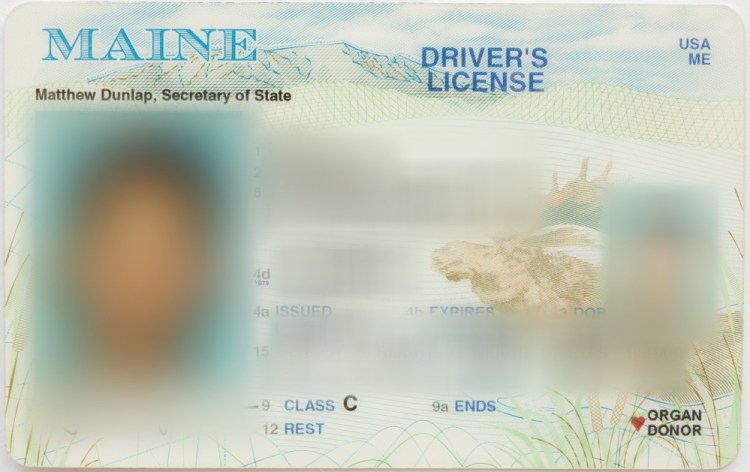A decade ago, Maine lawmakers stood up to the federal government, refusing to participate in an expensive program that would threaten our civil liberties.
It looks like that stand is just about over, with the Legislature close to final passage of a bill to comply with the Real ID law. Once it gets to his desk, Gov. LePage has given every indication that he plans to sign it, putting an end to the controversy.
It’s rare to see such a complete reversal of policy. Maine was the first state in the country to refuse to comply with the law, making its position known with nearly unanimous votes in both the state House and Senate. The votes to give up the fight this week were equally one-sided.
WHAT HAPPENED?
What happened? Are lawmakers wrong to retreat from a long-standing position? Or were they wrong in 2007, and are making the right move now?
Neither. The change makes sense because the cost and inconvenience that would have been created by continuing to fight are not worth the shred of privacy that might have been preserved by holding out. If anything, the reversal shows how much has changed in the way we view privacy issues in the last decade, and how much more complicated the problem has become.
In 2005, Congress passed the Real ID Act, which set a 2008 deadline for states to issue driver’s licenses that had a machine-readable code containing personal information. Privacy advocates said the licenses would be a bonanza for identity thieves if the cards were lost or stolen, and that nationally networked state databases would be vulnerable to hacking.
Since the cards could be “read” electronically from a distance, critics were legitimately concerned that the government could use them to track individuals as they moved around the country. Maine refused to comply, and other states followed. But most states have since dropped their opposition, leaving Maine as one of a handful of outliers.
Maine driver’s licenses are no longer accepted as legal identification at some federal facilities, and starting next year, they would no longer be acceptable for boarding an airplane. Maine license holders would need to apply for passports if they wanted to travel by air, even if they never planned to leave the country.
And what we’ve learned about privacy since 2007 makes the concerns about driver’s license information seem tame.
The documents leaked by Edward Snowden in 2014 show that the National Security Agency scoops up phone records and has access to vast troves of our internet transactions, including emails and Web searches.
SURRENDERING PRIVACY
And 2007 was also the year that Apple introduced the iPhone. When lawmakers were first debating Real ID, they could have little notion how many people were going to carry around devices that contain far more personal information than could ever be coded on a driver’s license – from credit card numbers to health records along with GPS tracking that keeps an electronic record of nearly every move and conversation.
It can be argued that voluntary vulnerability is different from the government-mandated kind, and the Maine Legislature’s decision to let individuals opt out of Real ID and get a noncompliant license that will allow them to keep driving is a good compromise.
Maine was right to use what little influence it had to force an extended debate about the plusses and minuses of a national identification card and centralized information. But it’s going to take federal action to secure our privacy.
Send questions/comments to the editors.



Comments are no longer available on this story